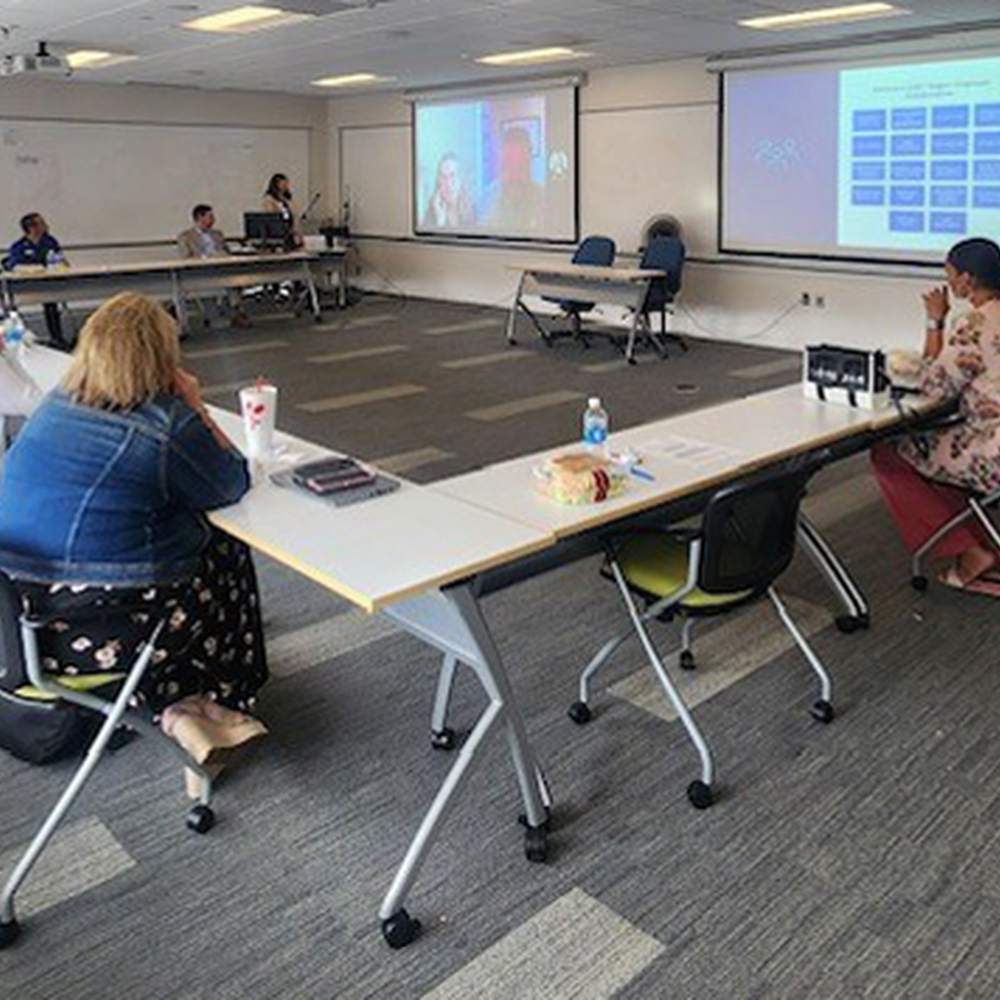The information sessions brought heightened awareness among local employers, universities, and community colleges regarding the urgent need for workforce solutions. During this period, 36 employers responded to the demand survey, many representing multiple facilities. The survey results therein highlighted a critical finding: the demand for Registered Nurses (RNs), Licensed Practical Nurses (LPNs), Certified Nursing Assistants (CNAs), and Certified Medical Assistants (CMAs) is projected to exceed the current output from training programs in the region. It became apparent to the group that addressing this challenge would require a multi-faceted approach that not only increases the supply of talent but also focuses on retaining skilled professionals within the organizations, the region, and the broader healthcare industry.
"We are very excited to be a part of this important project and look forward to being part of the solution to solving the healthcare talent pipeline shortage we are currently facing," said Richard Payne, SHRM-CP from Eagle Physicians. "Shortages in the talent pipeline ultimately affect the ability of healthcare organizations to deliver high-quality, compassionate care to our community."
Employers identified key challenges impacting recruitment and retention, including the need for competitive salaries and benefits, maintaining engagement with qualified candidates throughout the recruitment and training process, and finding workforce-ready new graduates. Educators highlighted their own challenges, such as recruiting and retaining faculty, securing clinical training sites, and securing adequate funding. Despite these hurdles, the survey reinforced the strengths of our region—namely, a robust educational infrastructure and a thriving healthcare industry—all of which position the Piedmont region well for success.
The 20 employers involved in the Employer Collaborative began to prioritize their efforts based on insights from the demand survey and regional critical jobs data. At this point, the collaborative was nearing a decision on which specific areas to focus its efforts. This phase marked a turning point, as stakeholders transitioned from data analysis to targeted planning. With a clear focus emerging, a statewide action planning session was held to review overall goals, timelines, and expectations for the larger NC Health Talent Alliance initiative. This session also served to align efforts across the five participating AHECs in North Carolina, providing critical support to the ongoing work in each region, including Piedmont AHEC.
Following extensive discussions within the Employer Collaborative, the focus was further refined to address the workforce needs for CNA and CMA positions. These roles are integral to the functioning of the healthcare system and serve as critical entry points into the nursing pipeline. The collaborative determined that concentrating on these roles would have the most immediate impact on addressing workforce shortages while laying the groundwork for broader talent pipeline development. After identifying the focus areas, the Regional Advisory Council convened to discuss potential strategies for addressing the workforce gaps in CNA and CMA roles. This meeting emphasized a solution-oriented approach, focusing on initiatives that could be implemented in the short term while planning for long-term sustainability. The collaborative then divided into two specialized groups, each focused on developing solutions specific to either CNA or CMA roles. This targeted approach will allow for a more in-depth analysis of each role’s unique challenges and the development of tailored solutions to increase the supply of qualified candidates and support retention efforts.
“The Piedmont Health Talent Alliance’s continuous engagement and dedication over the past year has produced a holistic view of our region’s workforce needs and a strong sense of collaborative ownership, both of which are foundational to the talent pipeline process,” said Dana Millikan, TPM Project Manager for Piedmont AHEC. “I am incredibly impressed with the progress that our partners have made while also facing the very real workforce challenges in their organizations. They are now moving into a very exciting phase of the project that will directly impact the talent gap, which is only possible because of their commitment and hard work of organizing and planning.”
Currently, the collaborative subgroups have begun meeting to research potential programs and solutions aimed at increasing the talent supply and retaining skilled professionals within the region. Initial recommendations will be presented to stakeholders, and the group will map out a clear plan for implementation. A key next step involves partnering with local educators to assess the feasibility of proposed solutions and to implement at least two targeted initiatives in 2025. To ensure continued support and alignment, an Executive Leadership meeting is being planned to provide a detailed update on progress and to secure the backing of local organizations, education systems, and community partners. As the group advances into the next phase, focus lies on determining solutions, identifying funding opportunities, forming project teams, and establishing milestones and metrics to guide the implementation process for this incredibly important effort.

